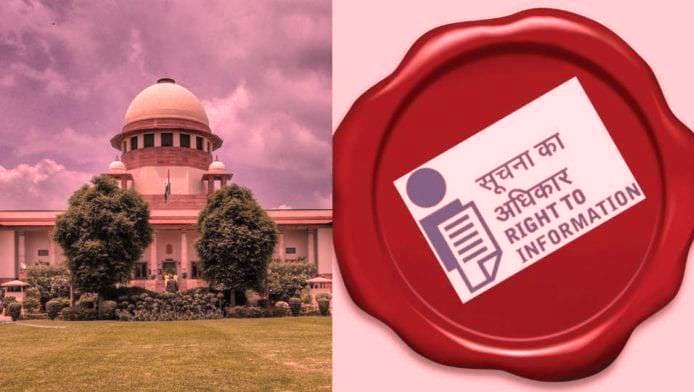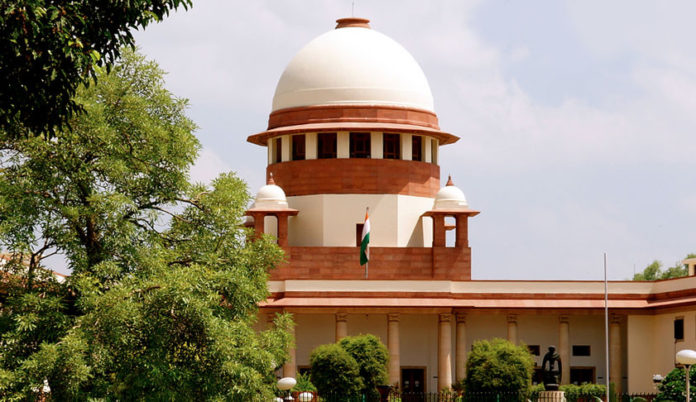In a series of judgements and reviews being passed today by the Supreme Court of India, the office of Chief Justice of India was brought under the ambit of Right To Information Act. The landmark judgement was pronounced on Wednesday by five-judge constitution bench headed by Chief Justice Ranjan Gogoi.
“Transparency doesn’t undermine judicial independency,” Supreme Court said while upholding the Delhi High Court judgment which ruled that office of the Chief Justice comes under the purview of RTI.
The SC bench was headed by Chief Justice Ranjan Gogoi, who retires on November 17 while other members of the bench included Justices N V Ramana, D Y Chandrachud, Deepak Gupta and Sanjiv Khanna.
The judgment was pronounced on petitions challenging the Delhi High Court decision.
In a landmark verdict on January 10, 2010, the Delhi High Court had held that the office of the chief justice of India comes within the ambit of the Right to Information (RTI) law, saying judicial independence was not a judge’s privilege, but a responsibility cast upon him.
A five-judge constitution bench had on April 4 reserved its verdict on the appeals filed in 2010 by the Supreme Court secretary general and its central public information officer against the high court and the central information commission’s (CIC’s) orders.
The bench had then concluded the hearing by saying, “Nobody wants to remain in the state of darkness or keep anybody in the state of darkness.” And further added, “The question is drawing a line. In the name of transparency, you can’t destroy the institution.”
But, the 88-page judgement was then seen as a personal setback to the then CJI, K G Balakrishnan, who has been opposed to disclosure of information relating to judges under the RTI Act.
The high court verdict was delivered by a three-judge bench comprising Chief Justice A P Shah (since retired) and Justices Vikramjit Sen and S Muralidhar. The bench had also dismissed a plea of the Supreme Court that contended bringing the CJI’s office within the RTI Act would “hamper” judicial independence.
The move to bring the office of the CJI under the transparency law was initiated by RTI activist S C Agrawal. His lawyer Prashant Bhushan had submitted in the top court that though the apex court should not have been judging its own cause, it is hearing the appeals due to “doctrine of necessity”.
The lawyer had described the reluctance of the judiciary in parting information under the Right To Information Act as “unfortunate” and “disturbing”, asking: “Do judges inhabit different universe?”
On dealing with “judicial independence”, he said the National Judicial Accountability Commission Act was struck down for protecting the judiciary against interference from the executive, but this did not mean that judiciary is free from “public scrutiny”.
“This is not the independence from accountability. Independence of judiciary means it has to be independent from the executive and not independent from common public. People are entitled to know as to what public authorities are doing,” Bhushan had said.
The deliberations of the collegium in appointing and overlooking judges or lawyers should be made public and information can be parted with under RTI on case-to-case basis keeping in mind the larger public interest, the lawyer also mentioned.
On the vulnerability of being in a position of power as of that of judge, the bench said, people, of late, were opting out and do not want to become judges because of the fear of negative publicity. “On interaction, the reason appears to be the possibility of the negative observations, whether rightly or wrongly, being brought into the public domain,” it had observed. Therefore, the apex court said it had brought about changes in the functioning of the collegium system.












